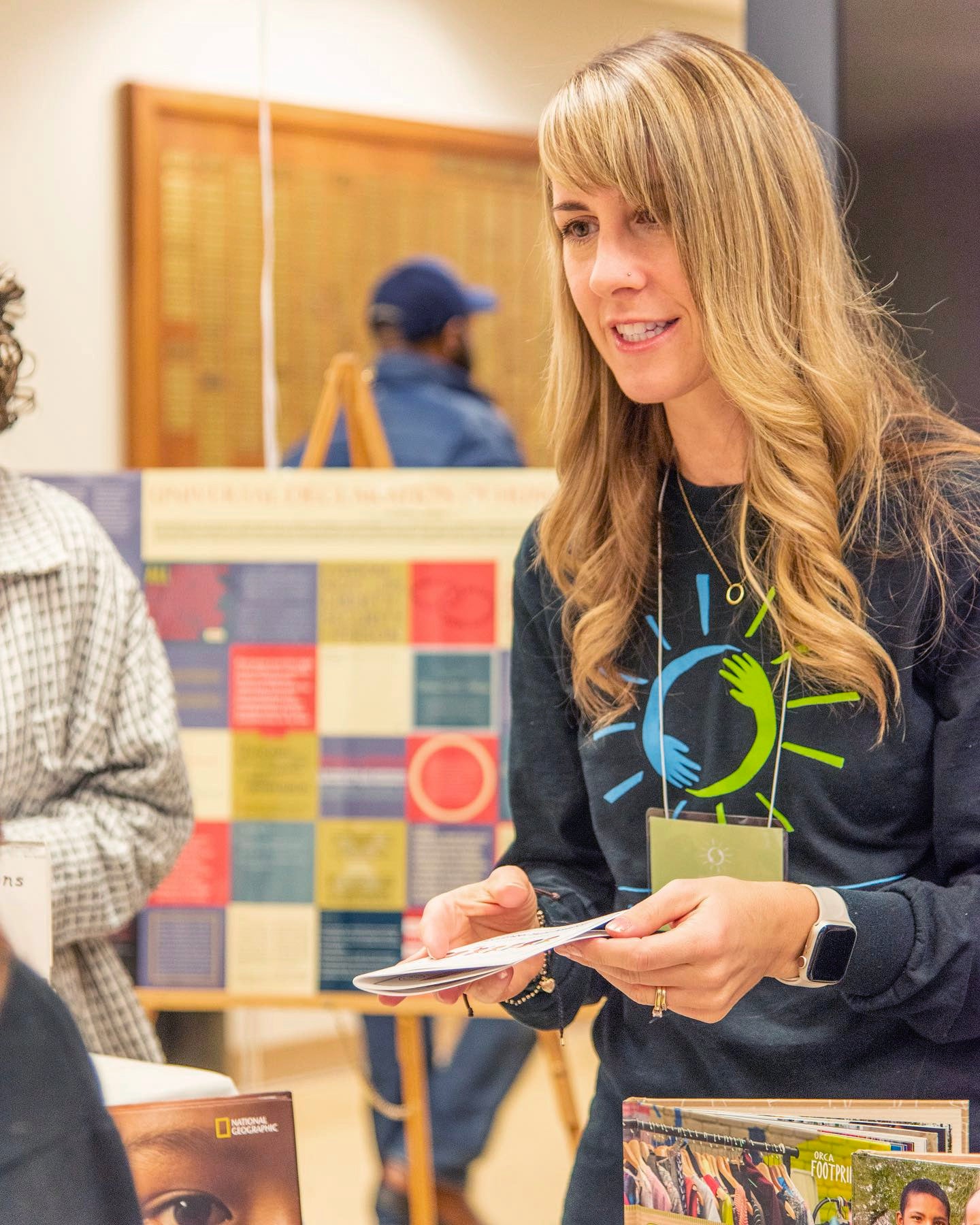
By Marian Pontz
“I'm so grateful for kind immigration lawyers,” said Michelle Kime. Kime is a longtime supporter of the Gifts that Give Hope Fair, where—for a decade—she sold her beautiful slow fashion pieces designed and created by Cambodian trafficking survivors through her business, Imagine Goods.
Now, Kime is in a new role, as an active member of Conestoga Valley’s SEEDS. This organization — five years in the making — recently received its official status as a non-profit, and is nurtured by a handful of caring, skilled, and dedicated community members. SEEDS is changing the way that one community has decided to support its neighbors.
SEEDS has committed to creating, in their words, “A healthy, thriving, Conestoga Valley community.” They are committed to serving three main areas—affordable housing, mental and physical health, and education. Their first initiative has been an ongoing series of Adult ESL classes, held in a local community church. Students looking to learn English meet with volunteer teachers and aides on Tuesdays and Thursdays for three hours, with the first hour and fifteen minutes being used to feed each family in fellowship with the volunteers. The organization’s working relationship with the Literacy Council provides the necessary materials and training. Friends and families provide the evening meal, donors provide toys, books, and craft projects for the children of the parents embarking on the learning of a new language (what is often their third or fourth language), and volunteer teachers and children’s caretakers give their time to plan activities and lessons.
SEEDS is all about building community through building relationships. This is evident in Kime’s dedication to supporting the program’s adult ESL students not just in their pursuit of learning English, but also in their pursuit of quality work and sometimes of a legal immigration status within the United States. The seven students and nine children who started these classes in Fall 2023 have grown to a group of 22 adults and 22 children, joining the classes from all over the world — including Egypt, Ecuador, Mexico, Venezuela, Ukraine, and Russia, to name but a few countries.
Kime and the SEEDS team use all of their resources to find supportive relationships that will help immigrants and refugees living within the CV community. As these folks work to learn American customs, language, and expectations, they are also facing an incredibly complicated legal process that might — or might not — allow them and their families to stay in the country.
One such couple was willing to share their story with me. Kime was available nearby to ask some critically important clarifying questions; after years of working with refugee women in her position as an employee care manager with Stroopies, and now, working with her SEEDS clients, she has a true understanding of the confusion of immigration law and ICE.
Yanny and Jose, along with their two sons, escaped from a dangerous Venezuela and then rebuilt their middle-class lives in Chile. Jose brought with him his university degree and work experience in bank management; Yanny worked in the same bank and is only one semester from graduating from university.

But Chile, struggling during the Covid-19 pandemic, forced all Venezuelans to leave the country, the couple shared. Thus began their journey back to their home country of Venezuela. They faced severe retribution towards those that had left. Jose was lucky in that he had a valid passport and applied to come to the U.S. on a travel visa. He could leave, but Yanny and their children did not have passports, their country would not issue one, and there is no U.S. embassy in Venezuela to appeal to.
As Jose’s plane landed in the U.S., knowing nothing of his family’s whereabouts, Yanny and her boys were walking across the border into Columbia, then onto Mexico, and then flying into Texas. Luckily, the boys and their mother were kept together in the border detention camp. Yanny listened intently each day for her name to be called. Because the family has a U.S. sponsor, they were reunited after two days — they say that they consider themselves lucky.
Currently, Jose is working in a field that is very new to him, but he says that he is grateful for the work and the ability to support his family, building trusses with Amish builders. He shares that he is happy and grateful for the work, but dreams of one day working as a bilingual banker. Until recently, Yanny was facing deportation; however, Kime and SEEDS Board Members were able to locate and connect the family with a kind immigration lawyer. It will take time, an abundance of paperwork, and thousands of dollars, but the family gets to stay together — to live and learn and contribute to our community.
SEEDS is made up of a small group of citizens who saw a need within their Conestoga Valley community, and instead of thinking that someone else or even the government would help, they have stepped in and organized themselves to be connectors, supporters, relationship builders, and advocates for their families. As former First Lady Barbara Bush once said, “To us, family means putting arms around each other and being there.” SEEDS is there, arms outstretched and around, supporting and uplifting their families — each and every one.
For more information or to learn how to support SEEDS’ work, visit seedscv.com.


